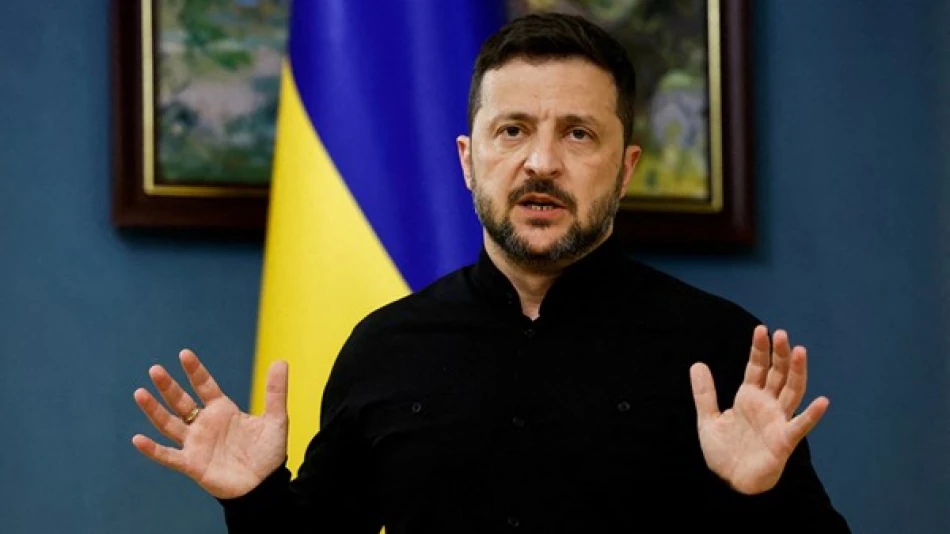
Zelensky Proposes Negotiations Offer to Russia, Seeking Diplomatic Resolution
Ukraine Pushes for Accelerated Peace Talks as Zelensky Calls for Urgent Ceasefire
Ukrainian President Volodymyr Zelensky announced Saturday that Kyiv has sent Moscow a proposal for another round of negotiations in the coming days, signaling Ukraine's continued diplomatic efforts despite ongoing military operations. The move represents Ukraine's attempt to maintain dialogue channels while international pressure mounts for a resolution to the conflict.
Diplomatic Window Remains Open
In his evening video address, Zelensky emphasized the need to "accelerate the pace of negotiations" and to "do everything possible to stop the ceasefire." This latest diplomatic overture comes as both nations have engaged in intermittent talks since the conflict began, with previous rounds yielding limited concrete results.
The timing of Ukraine's proposal suggests Kyiv recognizes the importance of maintaining diplomatic momentum, even as military developments continue to shape the broader strategic landscape.
Strategic Implications of Continued Dialogue
Ukraine's Negotiating Position
Ukraine's proactive approach to scheduling talks reflects a calculated strategy to demonstrate its commitment to peaceful resolution while maintaining international support. By consistently proposing negotiations, Kyiv positions itself as the party seeking diplomatic solutions, which strengthens its standing with Western allies and neutral nations.
Regional and Global Stakes
The conflict has far-reaching implications beyond the immediate region. European energy markets, global grain supplies, and broader security arrangements all hinge on the outcome of these negotiations. Each round of talks carries the potential to either de-escalate tensions or reveal the depth of disagreements between the parties.
Historical Context of Conflict Resolution
Previous conflicts in the region, including the 2014 Minsk agreements, demonstrated both the possibilities and limitations of negotiated settlements. Those earlier accords provided temporary stability but ultimately failed to resolve underlying territorial and political disputes, offering lessons for current diplomatic efforts.
The international community's role in facilitating and guaranteeing any future agreement will likely prove crucial, as past settlements suffered from insufficient enforcement mechanisms and evolving geopolitical dynamics.
Market and Economic Considerations
Financial markets continue to monitor diplomatic developments closely, with energy prices, agricultural commodities, and regional currencies responding to perceived shifts in negotiation prospects. Any substantive progress in talks could trigger significant market movements, particularly in European energy sectors and emerging market assets.
The economic costs of prolonged conflict extend beyond immediate military expenditures to include reconstruction needs, refugee support, and long-term development impacts that make diplomatic resolution increasingly attractive to all parties involved.
Most Viewed News

 Layla Al Mansoori
Layla Al Mansoori






